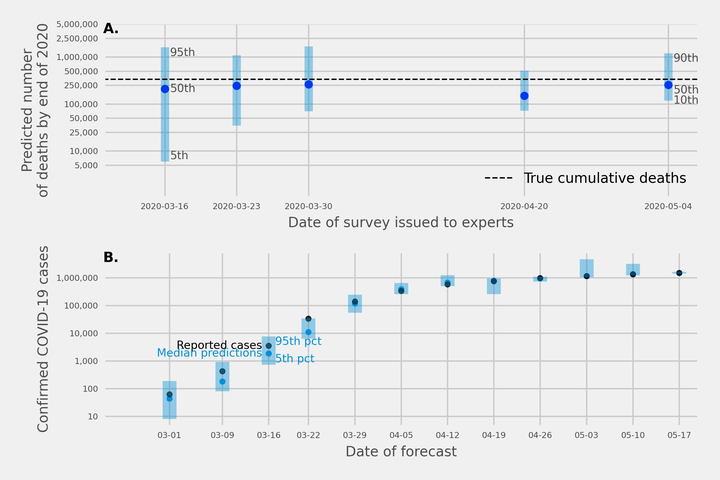An expert judgment model to predict early stages of the COVID-19 outbreak in the United States

From February to May 2020, experts in the modeling of infectious disease provided quantitative predictions and estimates of trends in the emerging COVID-19 pandemic in a series of 13 surveys. Data on existing transmission patterns were sparse when the pandemic began, but experts synthesized information available to them to provide quantitative, judgment-based assessments of the current and future state of the pandemic. We aggregated expert predictions into a single “consensus prediction” by taking an equally weighted average of their probabilistic statements. At a time when few computational models made public estimates or predictions about the pandemic, expert judgment provided (a) falsifiable predictions of short- and long-term pandemic outcomes related to reported COVID-19 cases, hospitalizations, and deaths, (b) estimates of latent viral transmission, and (c) counterfactual assessments of pandemic trajectories under different scenarios. The consensus approach of aggregating expert predictions provided more consistently accurate predictions than any individual expert, although the predictive accuracy of a consensus rarely provided the most accurate prediction. This work highlights the importance that expert consensus could play in flexibly assessing a wide array of risks early in future emerging outbreaks, especially in settings where available data cannot yet support data-driven computational modeling.